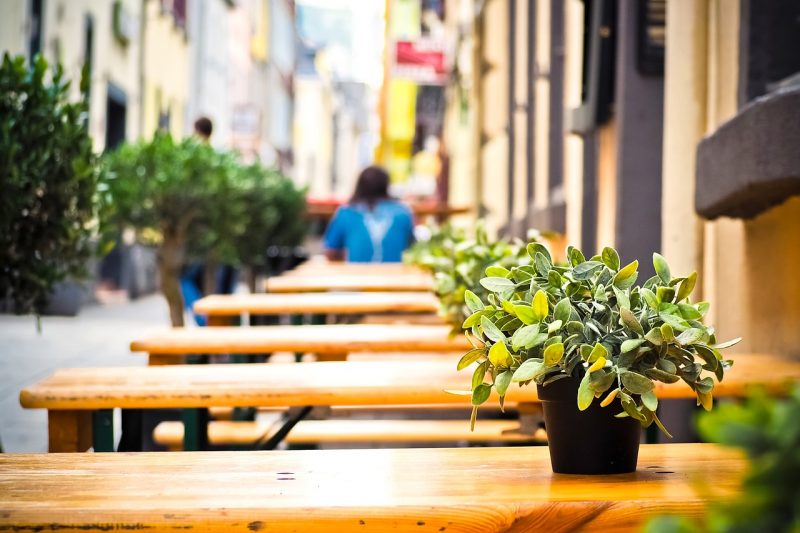“Sustainable,” “ethically-sourced” “eco-friendly” – you hear these buzzwords thrown around in food business marketing as customers are now more aware and quite particular of how their food is prepared and where it comes from.
Going Green – Inside Sustainable and Ethical Foodservice Design

“Sustainable,” “ethically-sourced” “eco-friendly” – you hear these buzzwords thrown around in food business marketing as customers are now more aware and quite particular of how their food is prepared and where it comes from. According to the 2017 Sustainable Dining research by OpenTable, 81 per cent of Australians opt for ethically sourced food with more than half gravitating towards restaurants that use locally-sourced seasonal produce. Going green is not just great for the environment, it is also a potential crowd-pleaser.
While many are more than glad to jump on the green bandwagon, adopting sustainable and ethical approaches to food business design and operations is easier said than done. The cost of acquiring eco-friendly equipment or using reclaimed materials can be quite steep. Joining the green movement may be great for attracting customers, but how do you keep it from hurting your design and fitout budget?
Sustainability And Foodservice
Sustainability is the concept on everyone’s lips off the back of the global call to begin adopting practices and investing in innovative solutions to slow down the devastating effects of climate change. In fact, by implementing eco-friendly concepts into your foodservice approach, your business will be doing its small part in supporting up to 6 of the United Nations’ Sustainable Development Goals by 2030, including:
- 6: Clean water and sanitation (ensure access to water and sanitation for all)
- 7: Affordable and clean energy (ensure access to affordable, reliable, sustainable and modern energy)
- 12: Responsible consumption and production (ensure sustainable consumption and production patterns)
- 13: Climate action (take urgent action to combat climate change and its impacts)
- 14: Life below water (conserve and sustainably use the oceans, seas and marine resources)
- 15: Life on land (sustainably manage forests, combat deforestation, halt and reverse land degradation, halt biodiversity loss)
Sustainability in foodservice refers to practices that aim to meet the demands of the business continuously, and without compromising on the ability to deliver the future demands of the industry. Staying sustainable means ensuring that as little waste as possible goes back to the environment. In a foodservice business, this could refer to water and energy efficiency efforts, the use of recycled building materials, reducing food wastage, the use of biodegradable packaging, and sound waste management practices. It also extends to ethically-sourcing ingredients and working to reduce the environmental impact in doing so, such as minimising food miles where possible.
Careful foodservice design plans for minimal waste production, efficient kitchen workflows and proper selection of energy-efficient equipment and fittings, which all go a long way towards your sustainability outcomes.
Ideally, sustainability should be implemented in all aspects of your food business. However, the cost of constructing a sustainable operation can catch some business owners off-guard.
Sustainability is cost-effective in the long run
Many business owners hesitate when it comes to sustainability because of the high initial investment it sometimes comes with. For example, using reclaimed materials is usually more expensive than using new construction materials. The higher price tag is due to the costs associated with reclaiming the materials in usable condition or in reconditioning them. Eco-friendly equipment can also sometimes have a higher upfront cost.
The best way to analyse the true cost is to consider the ROI (return on investment). A dishwasher may have a higher wattage element in it to increase recovery, but the machine is only hooked up to cold water, which saves money on heating and energy costs.
Sustainability is also about reducing waste. There are waste management options, such as insinkerators and compactors. These can increase the initial investment, but can also assist in reducing costs associated with handling and dumping rubbish. Insinkerators can also be used to increase eco-friendliness through composting.
You don’t have to think big to have big impacts on the sustainability of your foodservice operation.
Green food business design
If you want to implement sustainable and ethical practices, start from the beginning. Sustainability should ideally be implemented across the stages of building your food business – from design and construction to fit out, and finally, through operations. At the design and construction level, you can try implementing the following ideas:
- Using reclaimed wood for furniture and countertops
- Use of recycled paper for menus, stationery and signs
- Biodegradable cutlery
- Recycled iron cladding
- Implementing better circulation around the premises through the smart placement of windows
- Careful placement of airconditioning and heating appliances and systems
- Selecting energy-efficient equipment to use in the kitchen and considering what equipment works best alongside each other
- Facilities for grey water recycling or rainwater harvesting
- Installation of energy efficient lighting fixtures and automated temperature control systems
- Using an efficient commercial kitchen layout to reduce equipment inefficiencies, such as the number of times fridge doors are opened and closed (also good for labour costs)
Sustainable and cost-efficient design
A fully-sustainable restaurant design may be the ideal, but you can also opt for introducing sustainable elements instead. Sustainable foodservice design need not be costly. Sometimes it depends on how you approach the project in the first place. A food service designer that understands the importance of using environmentally-friendly design elements can better advise you on options that will suit your budget.
Want to hear from someone who has taken sustainability to the next level in their business? Listen to our interview with Jonny Garrison, co-owner of GrassFed Vegan.
Food Strategy’s designers are experts in sustainable foodservice design. Get your restaurant or cafe project started by sending us a message today.
